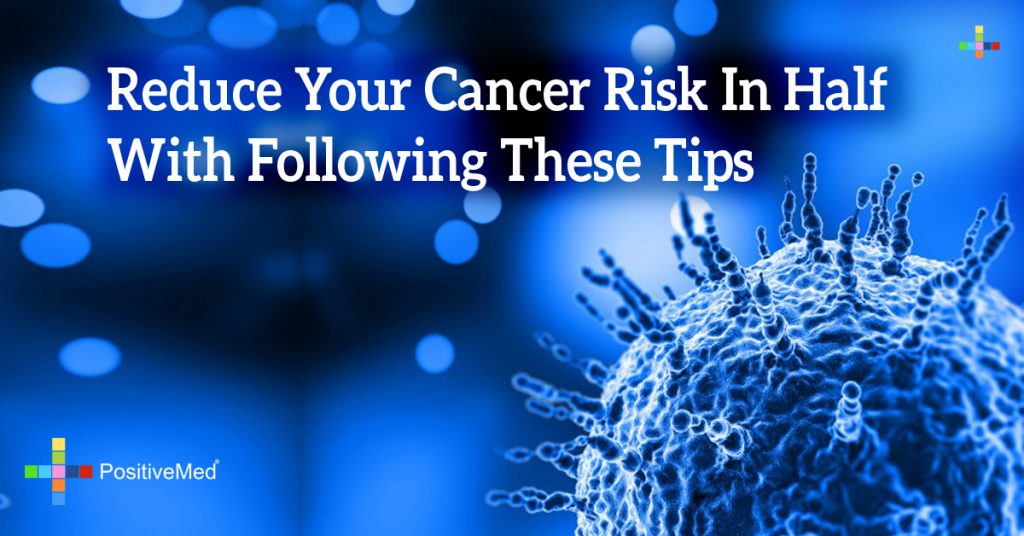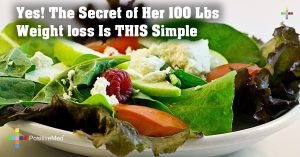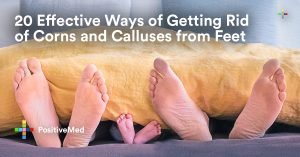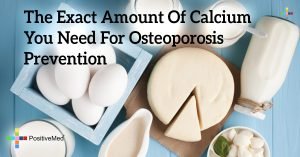
Reduce Your Cancer Risk In Half With Following These Tips
Vitamins do more than simply keep the body functional, they may also reduce your cancer risk for 30, 40, or even 50 percent. One study found that calcium and vitamin supplements can reduce the risk of cancer. Calcium supplements may help DNA mechanisms that are meant to repair itself, helping prevent DNA repair disruptions which can lead to cancer and other diseases. This same study discovered that vitamin supplements reduce the risk of developing breast cancer by about 30%, and calcium reduces the risk by about 40%. Those who take multivitamins or calcium supplements should talk to their doctor about their benefits and risks as well as their individual risk for cancer, after all, your diet is one of, if not the most, powerful ally you have. Numerous compounds exist naturally in a variety of foods and spices that happen to have properties that help prevent cancer.
Another study found that the consumption of magnesium-rich foods may have anti-cancerous benefits. Coenzyme Q10, or CoQ10, is a compound every cell in the body needs in order to function. It’s an antioxidant, which keep healthy cells healthy and protect them from free radical damage, which can help prevent heart disease. Other studies have found that those who take CoQ10 after a heart attack are less likely to die from heart disease. CoQ10 is also proven to lower cholesterol and lower blood pressure.
The body requires some fatty acids in order to function properly, but it cannot meet the entirety of the demand, here’s where your diet needs to step in. Omega-3s are a fatty acid and need to be consumed to help the body along, these fatty acids can be found in tuna, mahi mahi, salmon, and other fatty fish. There are some fish oil supplements that also have this so-called essential fatty acid, but be warned – overfishing for these supplements is seriously harming our oceans. Omega-3s can help reduce risk factors for heart disease, as well as decrease the risk for breast cancer and colon cancer – though studies and scientists tend to disagree about how much, exactly, they help and more research is needed to quantify these claims.
As you can see, the scientific community is constantly studying the role of diet in the development of cancer. Most findings are in their early stages, but more is being discovered every day. The consumption of fruits, vegetables, and nuts may slow the process of developing cancer in the digestive tract – from the oral cavity to the rectum. In addition to this risk of developing cancer, developing heart disease, obesity, diabetes, hypertension, and other diseases may be prevented by eating more fruits and vegetables as well as fish and free-range meat. The evidence suggests that a fat intake of greater than 30% of your daily caloric intake can even increase the risk of developing some types of cancer as well as increase the risks for heart attack and stroke.

Take a deep breath and don’t panic! Having certain risk factors does not mean that cancer is inevitable, but eating smarter can make a difference.
– Cruciferous and dark, leafy green vegetables: broccoli, Brussel sprouts, cabbage cauliflower, collards, kale, spinach
– Fruits: berries, citrus, cherries
– Legumes: lentils, dried beans, and peas
– Fish: trout, mackerel, salmon, kipper, eel, whitebait, fresh tuna, swordfish, anchovies, carp, pilchards, hilsa, sprats, bloater, jack fish





